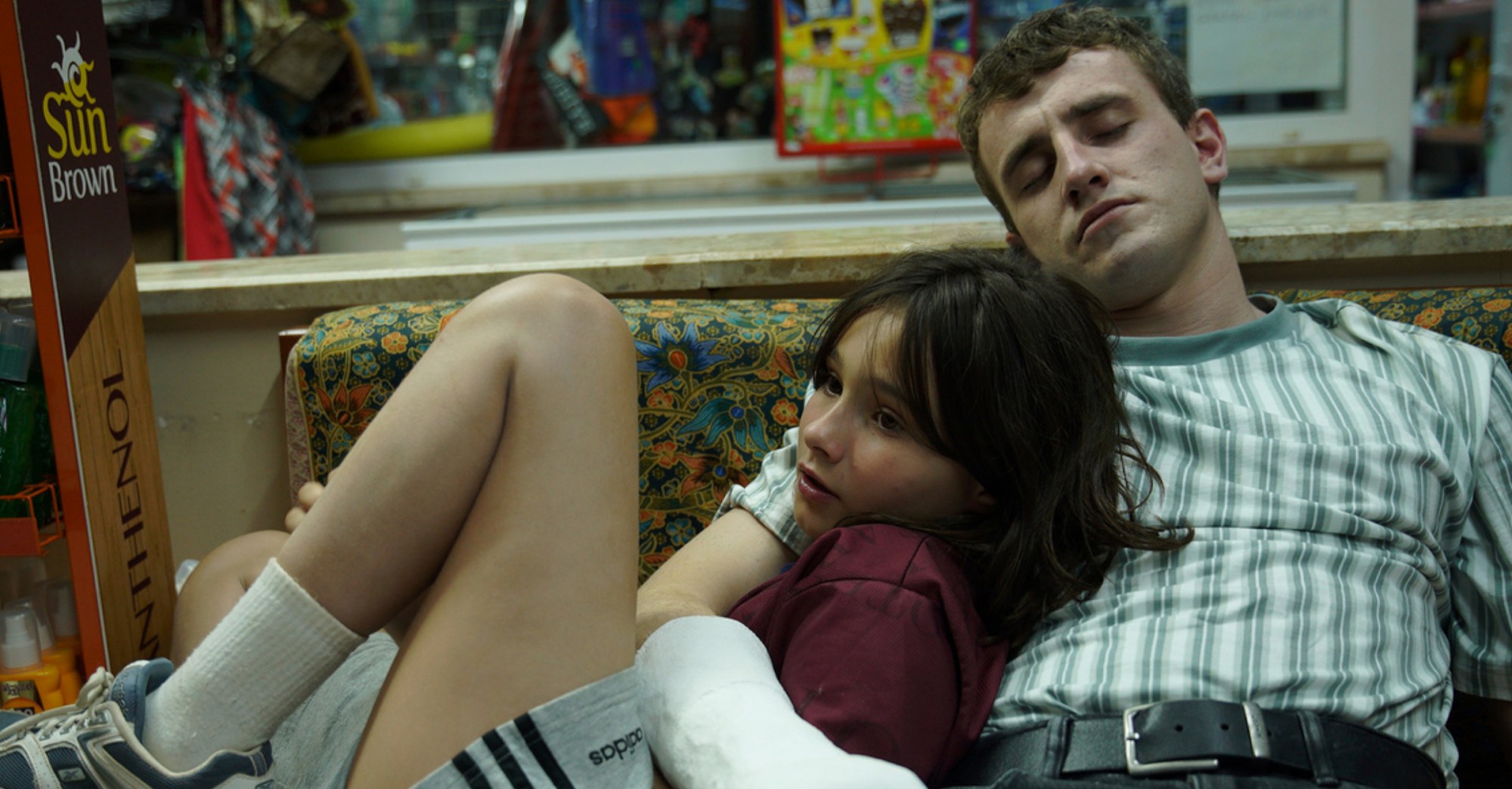
- Industry
“Aftersun”: The Debut Film of Scottish Director Charlotte Wells, Starring Paul Mescal
There was a two-minute standing ovation after Aftersun in Cannes, the Charlotte Wells directed film starring Paul Mescal (The Lost Daughter) and terrific newcomer, Frankie Corio, as a father and daughter duo on a vacation in Turkey.
The film is a deeply personal character study by the Scottish director in her debut feature. Told in the gauzy light of its title, it’s both a coming of age and fish out of water exploration of a divorced father living in London who, throughout a week-long getaway, tries to connect with his pre-teen daughter, Sophie, who lives with her mother in Scotland.
Often mistaken for brother and sister because of their closeness in age, Mescal captures the earnestness of a young man who would be doing so many other things on this vacation if he were not in the role of the father. He is caught constantly pushing himself out of a fugue state of internal distress to ‘do the right thing’ as a dad. Yet, no matter his efforts, he’s repeatedly reminded that the image he had sought to create is a fantasy that falls far short.
The hotel is under construction, and the father lacks the money to allow his daughter to do the special things the other children do that make a vacation in a resort so ‘free’. Each tries to create perfection but the strain and lack spread like cracking ice.
Inspired by a vacation the director took with her own father, Aftersun is a look back as an adult trying to understand those moments from her father’s perspective. While Frankie Corio creates the many ever-so-brief instants on the edge of childhood and the discovery of relationships – first kiss, the life she is about to experience as she enters her teenage phase, the uncoupling from a parent while loving them deeply – the director chooses to capture the raw purity of her actress’s face while adding little dialogue.
As the screenplay unfolds, the discipline the father exerts on himself crumbles. There is a scene where the daughter tries to recreate an earlier memory of the duo performing a karaoke version of R.E.M’s “Losing My Religion.” The burden of his emotional camouflage becomes unsustainable. He cannot participate in the singing. The words are painfully close to his real life. Not understanding, she goes up on stage and sings the song alone. His inability to join her underscores the poignancy and pain of the lyrics.
When introducing the film at its first showing in Cannes, the director shared, “This film has been seven years, and maybe a lifetime, in the making. Casting was an exercise in trust. It was trust truly well placed. As a team, we kept the film close to the chest. Those who know me know that’s how I live life, generally. Yet, here I am presenting Aftersun, which, in many ways, is my past and present. My worries and fears and ambitions and hopes and dreams, all is laid out before you on this 50-foot screen as it’s about to be unveiled. Not a lot of people have seen this film,” she told the early morning audience. “You are the first public audience for it.”
Paul Mescal was immediately attracted to the script upon reading it. “I knew I would love to play Calum. The script was challenging to read. I knew this would be an interesting film. Meeting Charlie (Charlotte Wells), I knew this would be a filmmaker that was pretty extraordinary. Together, it was a no-brainer. I auditioned as hard as I could for it,” he shared during a Q&A at Cannes’ La Semaine de la Critique.
To create the necessary familial closeness between the actors, they were asked to arrive on the film set two weeks before shooting. The idea, Mescal said at the same press conference, was “to connect, hang out, play pool, go to the sea, get crepes and carry her (Frankie Corio) around on my back.” In order to reach the heart of the character, he had extensive and detailed talks with the director, as well as broad conversations about the epoch, place, and overall context of the story being told. The actor, a star of the Golden Globe nominee TV series Normal People, stated: “Seeing someone try to succeed to be a good father and sometimes failing is truly tragic, and really moving.”
Portions of the film are projected through the screen of a camcorder, adding to the immediacy of some core moments. The adult Sophie’s inaccurate memories of what had been, possibly, the last vacation she took with her father, piece together his past while grasping at real or imagined memories. She is trying to make sense of ‘the shared joy and private melancholy of a holiday she took with her father twenty years earlier.’
Aftersun has been honored by the Critics’ Week sidebar at the Cannes Film Festival, which celebrates first and second films. One of its producers is Golden Globe nominee Barry Jenkins. A24 has purchased the film for the US and Canada.

